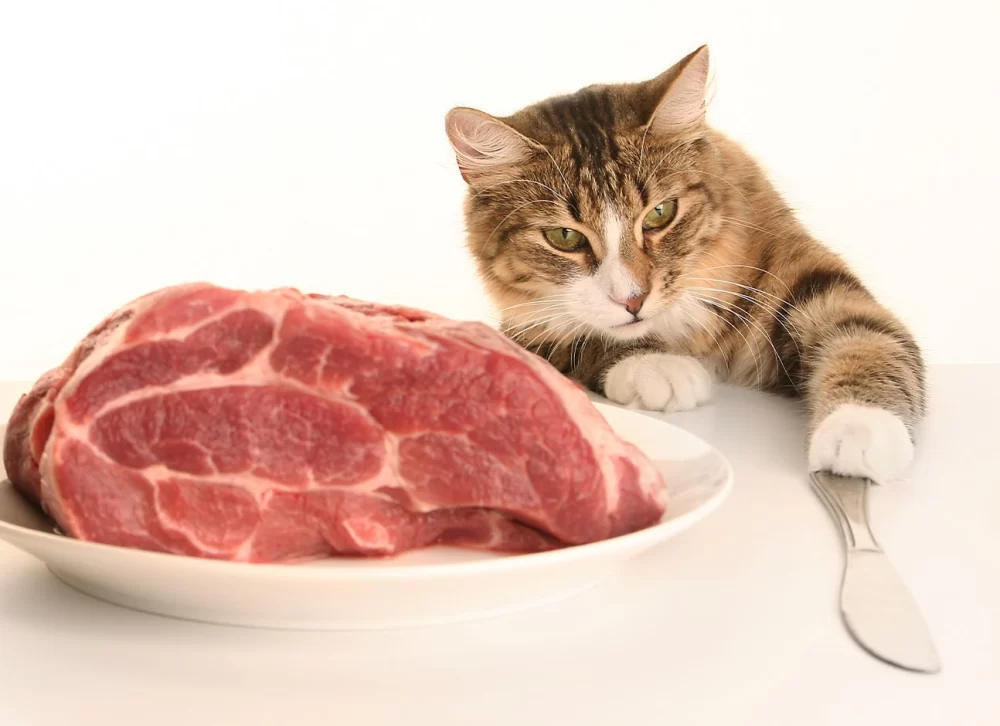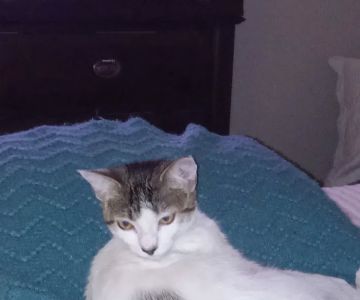Can Cats Eat Cooked Lamb? What You Need to Know
As a responsible pet owner, you likely wonder about the safety and suitability of various human foods for your beloved cat. Lamb, with its rich flavor and tenderness, is a popular choice for many meals, but can cats eat cooked lamb? This article explores the risks and benefits of feeding cooked lamb to cats, helping you make an informed decision about your cat’s diet.
The Nutritional Value of Lamb for Cats
Lamb is a good source of high-quality protein, which is essential for your cat’s muscle development and overall health. It also contains vital vitamins and minerals, such as B vitamins, zinc, and iron, which contribute to a healthy immune system and energy production. However, it is important to understand that while lamb offers these nutrients, it’s not an essential part of a cat’s diet. Cats are obligate carnivores, meaning they thrive on animal proteins, but the type of meat and preparation matter greatly.
Is Cooked Lamb Safe for Cats?
In general, cooked lamb is safe for cats to eat in moderation, but there are important guidelines to follow. First, make sure the lamb is fully cooked without any added seasonings, spices, or oils. Ingredients such as garlic, onions, or excessive salt can be toxic to cats and should be strictly avoided. Additionally, the lamb should be cooked at a safe temperature to eliminate any harmful bacteria, which could cause foodborne illnesses.
Potential Risks of Feeding Cooked Lamb to Cats
Although cooked lamb can be safe for cats, there are a few potential risks to be aware of. Overfeeding lamb can lead to digestive upset, as it’s a rich meat that may be hard for some cats to digest. Fatty cuts of lamb can also be a concern, as excess fat can contribute to obesity and pancreatitis, a condition where the pancreas becomes inflamed.
How to Safely Feed Cooked Lamb to Your Cat
If you decide to feed your cat cooked lamb, follow these steps to ensure it’s a safe treat:
- Remove all bones: Lamb bones can splinter and cause serious injuries to your cat’s mouth, throat, or digestive tract. Always make sure to remove any bones before feeding the meat.
- Cook the lamb thoroughly: Cook the lamb without any seasonings, sauces, or oils. Plain, well-cooked lamb is the safest option for your cat.
- Serve in moderation: A small amount of lamb as an occasional treat is appropriate, but avoid making it a regular part of your cat’s diet. A balanced diet of high-quality cat food should always be your cat’s primary source of nutrition.
- Observe for any signs of discomfort: After feeding lamb to your cat, monitor them for any signs of digestive distress, such as vomiting or diarrhea. If your cat shows any unusual symptoms, contact your veterinarian immediately.
Can All Cats Eat Cooked Lamb?
Not all cats will react the same way to cooked lamb. Some cats may have food sensitivities or allergies that make lamb an unsuitable choice. For example, cats with pancreatitis or certain digestive disorders should avoid fatty meats like lamb. If you’re unsure whether your cat can handle lamb, it’s always a good idea to consult with your veterinarian.
Fun Fact: The Story of a Lamb Lover
Many cat owners wonder how their feline friends react to new foods, and feeding lamb is no exception. A popular story among pet owners is about a cat named Whiskers, who developed a love for lamb after her owner decided to try it as an occasional treat. Whiskers was a picky eater, but once her owner introduced her to cooked lamb, it quickly became her favorite indulgence. While Whiskers’ story is heartwarming, it also highlights the importance of moderation and careful observation. Not every cat will be as enthusiastic about lamb, but for some, it can be a delicious treat!
Conclusion
In conclusion, cooked lamb can be a safe and nutritious treat for your cat when prepared properly. As long as you follow the correct guidelines—such as avoiding harmful seasonings and ensuring the meat is thoroughly cooked—lamb can be an occasional addition to your cat’s diet. However, always remember that moderation is key. If in doubt, it’s best to consult with your veterinarian to ensure that lamb or any other new food is appropriate for your cat.












